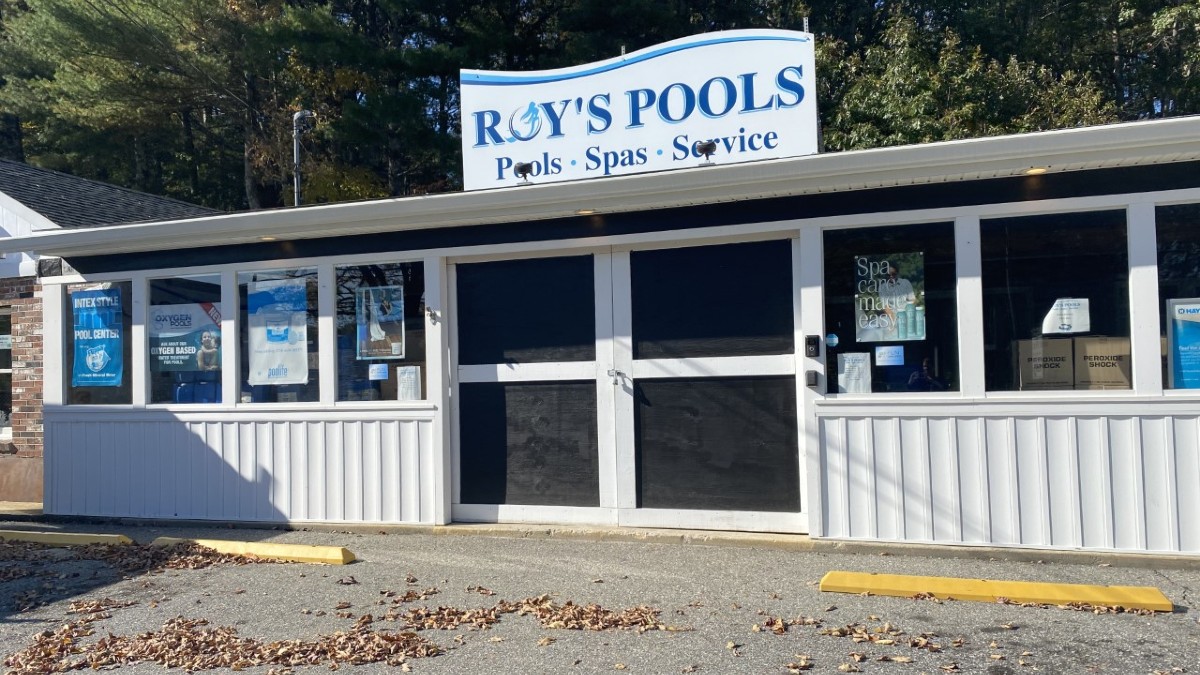“These events just send a very grim message to humanity,” said Vladimir Sivak, a Ukrainian student at Yale.
When the Russian invasion began this week, Ukrainians in Connecticut saw what was unfolding and immediately heard from family on the ground.
“And right now, they're just hiding in basements,” said Zoriana Kramarenko. “They grabbed water, some snacks."
Her family is in Kharkiv, where she said they're in a basement after hours of shooting recently sent everyone into hiding.
329 medal events. 32 sports. Endless drama. Catch all the action at the Paris Olympics. Sign up for our free Olympics Headlines newsletter.
“It's horrible when you don't know what to feel because you’re scared for family. And you first - first of all, you think you can’t do anything," Kramarenko said.
The weight of it all hangs on Sivak, whose family just made it to a safer part of western Ukraine.
“I feel regretful that there is pretty much nothing I can do to help the situation,” Sivak said.
Local
Experts say what’s happening now is the culmination of what’s been happening in Ukraine for the last eight years. In the age of social media, the fighting is playing out online in front of the world.
Matthew Schmidt, the director of the International Affairs Program at the University of New Haven, said there is a benefit to the viral nature of what’s happening.
“You get it out to a lot of people, and in its raw form, people's ideas of what war really is can be shaken up when you get around sort of the editorial filter that happens in mass media,” Schmidt said.
The modern age of social media is the backdrop for the invasion Schmidt says mirrors the first and second World Wars, when forcibly taking another country was more common.
“The difference though, today is that this is roundly denounced by almost the rest of the entire world. And there is, you know, a concerted effort to find ways to do something against this,” Schmidt said.
He expects to see a long fight in by Ukrainian forces.
“And what we see is that the military is holding together even as they retreat, which they knew they would, they're holding together as cohesive fighting forces. And the trick will be to transition from the active defense, as it's called into an insurgency and maintain that unit cohesion, to be able to lead civil defense units,” Schmidt said.
“So, this war is not over. It's going to last a long time. And the next phase is insurgency coming in the next few days, few weeks, and it will be brutal," he continued.
He tells NBC Connecticut that he thinks it's possible for an insurgency to form that will stop Putin’s advances.
“This is going to, in the end, come down to the willingness to fight of the individual soldier, and the individual Ukrainian. And I believe that that will to fight is quite strong,” Schmidt said. “So, I expect a robust insurgency that will tie down Russian forces. And I believe that in the end, he won't achieve his political aim.”
Sivak watched the days leading up to the invasion and hoped Russia would not make the strike on Ukraine.
“I was optimistic this whole time and I was wrong with every conclusion I made previously,” Sivak said.
He completed his undergraduate studies in Moscow. Back then, he says, Russian students and professors weren’t supporting the government but could not voice their opposition. He said it continues today.
“Millions of people who live in Russia, their opinions are not being taken into account and the government is acting on its own will, doing things that they don’t want,” Sivak said.
Kramarenko said she’s trying to fight the feeling of helplessness by working with Anna Kobylarz of the Polish-American Foundation of Connecticut to support the people of Ukraine. She said she knows of a shelter in western Ukraine helping women and children.
“And obviously they need food, blankets, medicines, they need everything, like literally everything,” Kramarenko said. “They need money, but not all of stores are open. So, they need money and stuff like personal care items.”
Kobylarz said it was a natural partnership to work with Kramarenko. It's an effort that fills their hearts.
“Many Ukrainian people come into Poland and they need a shelter, they need the food, they need the transportation, there are families, they are looking for each other right now,” said Kobylarz.
Kobylarz said she’s on her way to Poland, where her parents are 150 miles from the Ukrainian border. She said she has plans to help those evacuating and help her parents deal with a frightening time.
“So, we don't know the future. What will happen next? We worry. That's why I'm going, because we are worried too,” Kobylarz said. "Many Polish people are thinking 'what will be next? If we are next?'”



